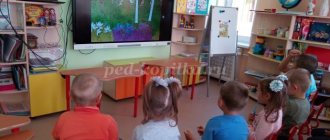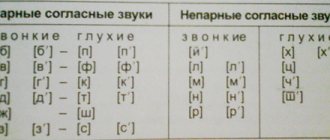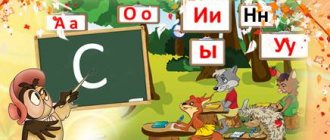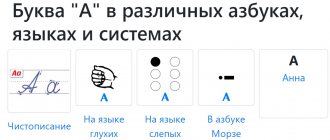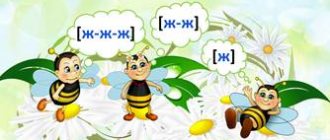Features of correctional and educational work with children with special needs of different levels
Kashley Anna
Features of correctional and educational work with children with special needs of different levels
Correction and developmental work with children
of the first level of speech development.
The need for early (from 3 years of age) comprehensive systematic correctional intervention is determined by the possibility of compensating for speech underdevelopment at this age stage.
Taking into account the structure of speech and non-speech defects of children in this category, the daily routine and schedule of classes in the junior group of kindergarten are designed in such a way as, on the one hand, to carry out correctional work as effectively as possible, and on the other, to create optimal conditions for the preservation and development of the health of preschoolers.
Defectological classes with children of the first level of speech development are conducted individually or in small subgroups. This is explained by the fact that they do not fully understand speech, assimilate instructions addressed only to them personally, as well as the presence of specific characteristics of mental activity. Therefore, the first classes are carried out only in the form of a game with the participation of your favorite puppet characters.
The content of each lesson includes several areas of work:
# development of speech understanding;
# development of active imitative speech activity;
# development of attention, memory, thinking of children
Correction and developmental work with children
of the second level of speech development.
The tasks and content of correctional and developmental education for 4-year-old children at this level are planned taking into account the results of their defectological examination, which makes it possible to identify the potential speech and psychological capabilities of children, and are correlated with the general educational requirements of a typical kindergarten program. Defectological classes in the middle group for these children are divided into individual and subgroup. Taking into account the neurological and speech status of preschool children, it is not advisable to conduct defectological classes with the entire group, since in this case the degree of assimilation of educational material will be insufficient
. In this regard, individual lessons are proactive in nature, since their main goal is to prepare children for active speech activity in subgroup lessons.
In individual lessons, work is carried out on:
1) activation and development of differentiated movements of the organs of the articulatory apparatus;
2) preparing the articulatory base for assimilation of missing sounds;
3) production of missing sounds, their differentiation by ear and the initial stage of automation at the level of syllables and words.
Depending on the nature and severity of the speech defect, the psychological and characterological characteristics of the children, their number in subgroups varies at the discretion of the speech pathologist (from 2-3 to 5-6 people). At the beginning of the school year, the number of people in the subgroup may be less than at the end of the study.
The content of defectological classes is determined by the objectives of remedial education for children:
# development of speech understanding;
# activation of speech activity and development of lexical and grammatical means of the language;
# development of the pronunciation side of speech;
# development of independent phrasal speech.
The following types of subgroup defectological training sessions are distinguished:
1) vocabulary;
2) grammatically correct speech;
3) coherent speech;
4) sound pronunciation, development of phonemic hearing and syllabic structure.
Subgroup classes are conducted by a speech pathologist in accordance with the schedule, individual classes are conducted daily, in accordance with the daily routine in a given age group of the preschool institution.
Correctional and developmental work with children
at the third level of speech development.
The main objectives of correctional and developmental education for children at this speech level are to continue working on the development of:
1) understanding speech and lexico-grammatical means of language;
2) the pronunciation side of speech;
3) independent, detailed phrasal speech;
4) preparation for mastering basic writing and reading skills.
In the first year of education, five-year-old children with general speech underdevelopment cannot fully master educational material in frontal classes with the entire group. Not only a delay in the development of speech affects, but also difficulties in concentrating attention, memory, rapid exhaustion and fatigue. Therefore, it is advisable to divide the group into two subgroups, taking into account the level of speech development, for conducting frontal defectological, as well as partially educational classes.
The following types of formation classes are provided:
# coherent speech;
# vocabulary, grammatical structure;
# pronunciations.
The number of classes that implement correctional and developmental tasks varies depending on the period of study.
Teacher's classes
The task of a kindergarten teacher for children with speech impairments includes the mandatory fulfillment of the requirements of the general educational program of upbringing and training1, as well as the solution of correctional tasks in accordance with the program of defectological work, aimed at eliminating deficiencies in the sensory, affective-volitional, and intellectual spheres caused by the characteristics of the speech defect . At the same time, the teacher directs his attention not only to correcting existing deviations in mental and physical development, to enriching ideas about the environment, but also to further developing and improving the activities of intact analyzers. This creates the basis for the favorable development of the child’s compensatory capabilities, which ultimately affects the effective acquisition of speech.
1 “Program of education and training in kindergarten”, ed. M. A. Vasilyeva, V. V. Gerbova, T. S. Komarova.
In a kindergarten for children with severe speech impairments, the teacher is provided with all the opportunities for the comprehensive formation of the personality of a child with a speech defect.
Compensation for a child’s speech underdevelopment, his social adaptation and preparation for further education at school dictate the need to master the same types of activities that are provided for in the mass kindergarten program.
In the process of mastering these types of activities, the teacher must take into account the individual typological characteristics of children with speech impairments, promote the development of perception, mnestic processes, motivation, and accessible forms of thinking.
Particular attention should be paid to the development of children's cognitive interests. In this case, it is necessary to take into account the peculiar lag in the formation of cognitive activity, which develops in children under the influence of speech disorders, narrowing of communicative contacts with others, incorrect methods of family education and other reasons.
The teacher’s task also includes creating a friendly environment in the children’s team, strengthening faith in one’s own capabilities, relieving negative experiences associated with speech impairment, and developing interest in classes. The implementation of these tasks is possible on the basis of good knowledge of the age and individual psychophysiological characteristics of children.
The teacher must be able to analyze various negative manifestations of the child’s behavior, notice in time signs of aggressiveness, conflict or increased fatigue, exhaustion, passivity and lethargy, and therefore make various demands, implementing a personality-oriented approach to the child’s speech and behavior. Correctly organized psychological and pedagogical influence of the teacher in the vast majority of cases prevents the appearance of persistent unwanted deviations in behavior and forms collective, socially acceptable relationships in the group.
Correction and developmental work with children
of the fourth level of speech development.
When highlighting the areas of correctional education for children in this category, it is necessary to determine:
- residual effects in the underdevelopment of speech function in a child;
— preserved components in the speech structure of the language, which will serve as the basis for further improvement of the child’s speech development;
— features of the child’s mental development, important in the formation of linguistic components of the language.
The process of mastering language resources in special education conditions is focused on two aspects: reliance on comprehension and training exercises. The ability to compare, analyze, and highlight differences in certain lexical and grammatical categories allows one to generalize linguistic patterns, which, in turn, contributes to the development of the phenomenon of transfer and sense of language.
The effectiveness of defectological work largely depends on the systematic and practical orientation of speech exercises. This ensures the formation of active speech activity and automation of speech skills. The principles of comparison and contrast of similar and different linguistic forms underlie the selection and distribution of various types of exercises.
When implementing the principle of a systematic approach to teaching children with the fourth level of speech development, a large role is still assigned to the interconnected formation of lexical and grammatical components of the language.
Formation of the phonetic structure of the language
When examining the speech of children with the fourth level of speech development, it is noted that there are no pronounced distortions of phonemes or their absence in their pronunciation. However, sound pronunciation does not yet correspond to the absolute norm. There are distortions of the syllabic structure of the word and violations of the differentiation of oppositional phonemes.
Therefore, the following tasks are set first of all :
1) Development in children of the ability to differentiate by ear oppositional speech sounds (whistles - hissing, voiced - deaf, soft - hard, r - l), and then - practicing these differentiations in pronunciation.
2) Consolidating the pronunciation of polysyllabic words with various variants of consonant sounds. In this case, the emphasis is on their differentiation, the use of complex syllable structure and sound content in independent speech ( poultry house, thermometer, rusty wire, stainless pan, basketball players playing basketball
).
3) Strengthening the skills of sound analysis and synthesis.
4) Literacy training.
Defectological classes on the formation of pronunciation skills at this stage of remedial education include several areas
:
- strengthening the skills of clear, intelligible pronunciation of vowels and consonants;
- assimilation of complex differentiations ( t-h-s-s-s
;
rr-ll-j
);
- the use in a speech context of words with a complex syllabic structure and sound content ( cyclists ride bicycles
etc.).
The effectiveness of all correctional work depends on compliance with special educational conditions
:
— systematic conduct of classes;
— their distribution in order of increasing complexity;
— subordination of tasks to the chosen topic;
- alternating exercise variability;
- developing attention to speech;
— a variety of organizational forms and methodological methods of work, taking into account the psychological and pedagogical characteristics of children;
— dosing of speech, intellectual and physical activity;
— compliance with the protective regime;
— implementation of an individual approach to children, taking into account the personal and characterological characteristics of children.
Consultation on the topic “The work of a teacher in groups for children with general speech underdevelopment (GSD)”
A socially significant task in the work of preschool institutions is to prepare children for successful learning at school. In specialized preschool institutions that form groups of children with special needs, it is especially important to promptly use the potential capabilities of children in this category, to maximally correct deficiencies in their development, and to overcome possible difficulties in further schooling.
Children with ODD, with primary intact intelligence, cannot independently master academic skills. Moreover, the learning process for children with general speech underdevelopment has a number of features and depends on many factors, in particular, on the severity and structure of the speech defect, and on individual typological characteristics.
In addition to the underdevelopment of all components of oral speech - phonetic-phonemic processes, lexical-grammatical structure and coherent speech, children with OSD are characterized by underdevelopment of processes closely related to speech activity: impaired attention and memory, articulatory and finger motor skills, insufficient development of verbal and logical thinking .
Correctional and educational activities in groups with special needs are led by a speech therapist and two educators. The most experienced teachers are involved. The characteristic features of children with ODD are manifested in classes, in play and everyday activities. Teachers of groups for children with special needs are faced with the need to constantly look for an approach to difficult and uncooperative children, to teach them the norms and requirements of communication in a team, without which socialization and full-fledged education are not possible.
The key positions in the organization of correctional and educational intervention in the conditions of compensatory preschool educational institutions for children with special needs belong to speech therapists, whose activities are characterized by fairly broad and diverse functions:
- diagnostic,
- preventive,
- correctional pedagogical,
- organizational and methodological,
- advisory,
- coordinating,
- control and evaluation.
Ignoring at least one of them inevitably leads to a deficiency of others and a decrease in the quality of correctional work with children in general. However, we should not forget the fairly strong potential of other participants in the correctional educational process: the teaching staff, parents, the child himself, who can significantly influence the timing and effectiveness of speech therapy work.
The teacher helps the speech therapist in overcoming OPD and processes closely related to it, and carries out a number of educational tasks provided for by the general education program for the upbringing and training of preschoolers.
However, it must be remembered that the most significant and leading direction is the correctional and educational direction.
Children entering groups of this profile at the age of five are one or two years behind their peers with normal development in terms of knowledge, speech and mental development, and behavioral skills. Their education has to begin according to the program of the middle group of a mass kindergarten. First of all, this concerns classes on the formation of elementary mathematical concepts and visual activities. Children with OHP are weakened, disinhibited, and get tired quickly. Increasing the age-appropriate study load is contraindicated for them. Therefore, the number of classes in several disciplines should be significantly less than in mass groups.
Corrective work in the group is carried out under the guidance and control of a speech therapist. A teacher in a speech therapy group is an assistant to a speech therapist in correcting speech and related disorders.
In speech groups, the teacher carries out correctional tasks:
- consolidates speech skills according to the instructions of the speech therapist;
- maximally replenishes, clarifies and activates children’s vocabulary during routine moments;
- carries out systematic monitoring of the sounds and grammatical correctness of children’s speech in classes and in free activities;
- in his classes he includes tasks for the development of attention and memory, stimulation of children’s verbal and logical thinking;
- develop voluntary finger motor skills of children.
The teacher conducts individual lessons on the instructions of the speech therapist in the afternoon. The teacher works with those children (2-3 children) whom the speech therapist indicates daily in a special notebook on the relationship in their work. It is important that at this time all the other children are busy playing quiet games and do not distract the children playing. Board games that take into account the characteristics of children and contribute to their development and learning are suitable for this purpose.
To develop fine, voluntary motor skills of the fingers, children are offered various lacing, mosaics, stringing of beads, and stencil drawing. If children have difficulties with constructive activities, you can offer cut-out pictures, games - puzzles, special cubes.
It is advisable to conduct classes with children in a specially equipped speech corner, which should be in every speech therapy group. The speech corner contains material for consolidating all components of oral speech, which is constantly replenished and updated. The child and the teacher study in front of a large mirror at the table. The teacher, by repeating and reinforcing individual tasks with the child, helps eliminate grammatical and phonetic errors made by children with speech pathology.
Where to start planning educational work in groups for children with special needs?
First of all, it is necessary to adapt a child with speech pathology to new, unusual living conditions for him, to new premises of group rooms, bedrooms, and so on. It is necessary to allocate time, perhaps, to conduct special classes to familiarize children with classrooms, groups, music, physical education and other premises of the kindergarten. Initially, when children’s speech is slurred, illegible, or distorted, it is not recommended to require detailed statements from children. At this stage, it is advisable to use the following forms of work:
- reading fiction;
- learning poems;
- viewing filmstrips, videos, using computer technologies whenever possible;
- conducting excursions;
- conducting conversations based on the picture.
As speech defects are corrected, it becomes possible to demand more complete answers and stories from children. When many children begin to master the skills of correct sound pronunciation, then it is possible to complicate the requirements and expand work on speech development: develop dialogic speech skills, work on the development of phrase structure, form and activate coherent speech skills. The speech therapist and teachers teach children to tell stories based on a series of plot pictures, from a plot picture, from memory, and teach them to compose descriptive and comparative stories.
In accordance with the work plan of the speech therapy group, all classes, without exception, contain and implement basic correctional tasks, all types of children's activities are defined. The so-called “speech mode” is actively used.
For example, morning exercises. When performing some exercises, children clearly pronounce the word: “Wow!”, “Clap!”, “Top!”, when squatting: “Knock-knock-knock!”, or: “Drip, drip, drip!” Children should speak words while exhaling. At the beginning of the year, 1-2 words are given, then, according to the kindergarten method, taking into account the speech capabilities of the children.
Before morning gymnastics, as well as before each lesson, articulation gymnastics should be carried out daily, consisting of 2-3 exercises that are well learned by children and do not require special visual control. For example, such general articulation exercises as “Clock”, “Swing”, “Drummer”.
Classes are the main activity in a child’s learning and development. Teachers plan classes taking into account all the assigned tasks, together with the speech therapist, they discuss the planning of classes, objectively assess the results achieved, and plan further work with children.
A word associated with a visual representation must be perceived by the child’s hearing, pronounced and stored in his memory. To do this, the child must perceive it with his hearing and consciousness many times, and in order to master the correct pronunciation of a word, he must repeat it often, consolidate it not only automatically, but at the same time mastering the skills of self-control.
Consolidating children's knowledge about autumn, the teacher clarifies their ideas about autumn phenomena with questions that encourage them to think and repeat to themselves:
— How did we know it was autumn?
Children are faced with the need to analyze and identify individual signs of autumn: it has become colder; leaves turn yellow and fall off; birds fly south, etc. In various games, children form and consolidate concepts about birds, vegetables, fruits, and so on, according to the content of calendar-thematic planning of group work. The teacher asks the children to name vegetables with the sound “S” (beets, radishes, cabbage), birds with the sound “R” (rook, crow, magpie).
In classes on drawing, sculpting, appliqué, design, the teacher teaches children not only technical skills: how to use a brush, a pencil, how to paint smoothly, how to sculpt from one piece, but also solves general educational problems, expands and enriches the vocabulary, and works on grammatically correct speech.
For example, children sculpt a cucumber and a tomato, compare them by shape, color, and ask riddles. When explaining, the teacher accurately uses the right words, pronounces them clearly, and asks specific questions. As a result of the lesson, when analyzing the work, attention is paid to the children’s independent responses, how they are guided by the teacher’s speech patterns, and how they formulate their statements grammatically correctly.
When planning mathematics classes at the beginning of the school year, the teacher can use the educational material of the previous group, taking an approach to children experiencing difficulties.
The teacher should try to use various analyzers, developing visual, auditory perception, and tactile sensations of children, alternate between different types of activities, observing a “protective regime” in the classroom.
Musical classes and singing develop breathing, improve articulation, mobility of speech organs, and reinforce established sounds. Singing helps to develop expressive speech; modal coloring helps to intonate correctly. Music affects the psyche and emotions of the child, eliminates embarrassment and stiffness.
The development of speech should be considered in continuous connection with the activities of children. The word should reinforce every effective skill learned by the child. The manifestation of speech is most pronounced in and through play. Very often, as already mentioned, speech-pathic children do not know how to play. The games of children 5-6 years old are primitive, corresponding to the age of a 3-4 year old child. Not being able to create a plot, children do not engage in verbal communication.
The teacher teaches children to play independently, plan correctly and conduct story-based games. A variety of game management techniques are widely described in the literature. But it is better to learn the text of outdoor games during a physical education lesson, in the morning or evening. A large place should be given to round dance games.
When planning walks, the teacher writes specific observations, thinks through questions that make the child think, and uses artistic expression. Then this material is repeated in classes to reinforce correct sound pronunciation.
Children show great interest in the “Nature Corner”. There is a wide field of activity here for the development of speech, activation of the vocabulary, correct pronunciation of complex words and the development of phonemic hearing. (Determine the position of a particular sound in the word). Working with children in a corner of nature develops the child’s mental abilities. Why did the flower fade and its leaves wither? - Poorly watered. Correctly maintaining the nature calendar develops and enriches the child’s speech, provides diverse speech material: the weather is rainy, the sky is cloudy, gray; day is sunny, clear, etc.
In the practice of the speech therapy group, routine moments are poorly used: washing, breakfast, dressing for a walk, getting ready for bed. It happens that teachers give children monotonous standard instructions: “Wash your hands!”, “Sit down!”, “Stand up!”, “Quiet!” Such fragmentary monosyllabic phrases do not contribute to the development of children's speech. An experienced teacher tries, when talking with children, to intensify their speech: “What a beautiful dress you have. Who bought it for you?
During meals, the teacher tells the children what is for breakfast and lunch today. Children learn the names of dishes and learn to use polite words.
Before class, the attendants inform you of the day, month, date. With certain children who are especially difficult in verbal communication, during preparation for bed, consolidate the general concepts of “clothing”, “bed”, make a riddle, for example, about a pillow, clarify the names of items of his personal clothing.
Individual and subgroup work with children to consolidate speech tasks can also be carried out using the morning time, when there are still few children.
Thus, only an integrated approach to overcoming ODD in children, with the active involvement of all teachers and employees of preschool educational institutions, is as effective as possible, contributes to optimal speech correction, increasing the level of speech development, and the formation of general mental skills. Children can, as a result, follow the directions and instructions of a speech therapist teacher, educator, control themselves and their friends, their general cultural level increases, and their readiness for social interaction is formed.
Literature:
- Tkachenko T.A. In first grade without speech defects. Toolkit. – Childhood-Press.
- O.A. Stepanova. Organization of speech therapy work in a preschool educational institution. – M. “Creative Center”
- Overcoming OHP in preschool children / ed. T.V. Volosovets. – M. “V. Sekachev”
Derecha Larisa Ivanovna, teacher-speech therapist of the State educational institution of the Omsk region “Special (correctional) elementary school-kindergarten “301”. Preschool inclusive
- Speech therapy work on activating the vocabulary of older preschoolers with general speech underdevelopment of level III by means of didactic games
- The work of a teacher to develop the sound culture of children’s speech
- Fairy tales as a means of developing coherent speech in preschoolers with general speech underdevelopment
- Impaired predicative vocabulary in children with general speech underdevelopment and mental retardation
- Creative project in the middle group for children with general speech underdevelopment based on the fairy tales of V. Suteev
( 6 liked, average score: 5.00 out of 5)
Loading...
